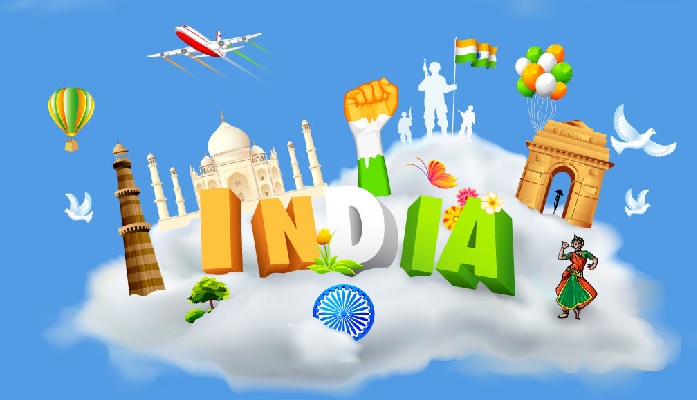A tryst with the past
The values envisaged by the builders of independent India need to be imbibed for sustained progress
Seventy-five years ago, on this day, India’s first Prime Minister Pandit Jawaharlal Nehru made these remarks in his stirring speech on India attaining freedom at midnight: “The achievement we celebrate today is but a step, an opening of opportunity, to the greater triumphs and achievements that await us. Are we brave enough and wise enough to grasp this opportunity and accept the challenge of the future?” These words ring true even today just as when Independence unshackled India from British rule — a milestone that, in some cases, inspired the birth of other new nation-states across the world, freed from the yoke of colonialism. Independent India embarked upon a new journey, imbued with the vision of its freedom fighters and a mission set on course by the members of the Constituent Assembly who worked on its unique liberal democratic Constitution. There have been significant achievements — a constitutional scheme guaranteeing rights that included freedom of speech, religion and a secular state, implementation of universal adult franchise in periodic elections, a thriving legislature, establishments allowing for a formal separation of powers, a quasi-federal union of States that were reorganised on a linguistic basis, the building of institutions (industrial, educational, medical) that heralded progress, and the unleashing of knowledge and communication sectors that tied India beneficially to the world economy. There have also been missteps and failings — the inability to eradicate extreme poverty and marginalisation even though these did come down dramatically since 1947, the strains in implementing the constitutional order and values, burgeoning communal majoritarianism, which was decidedly rejected by both the freedom fighters as well as the framers of the Constitution, the incomplete nature of decentralisation of power, and rising economic inequality. Today, on-the-one-hand, India stands tall as one of the world’s emerging economies with an advantageous demographic-dividend, a vibrant democracy that ensures enthusiastic participation in elections, a diverse polity, and a diversified economy. But it also faces humongous challenges. Its people live in a more chaotic world where cooperation and liberal trade relations have taken a beating and where climate change is a challenge. Also, the emergence and consolidation of a dominant political force that seeks to centralise power and homogenise the idea of India has threatened to unravel the constitutional structure of recognition of diversity and inclusion as the means for overall progress. Economic progress through inclusive growth — a process that was accelerated following comprehensive reforms in the early 1990s and the institution of a rights-based approach towards welfare in the mid-2000s — has slowed down in the last few years. Meanwhile, there is an exacerbation of inter-State disparities, with southern and western India delivering better outcomes in education, health care and thoroughgoing economic growth than other regions, an issue that requires careful deliberation in the near future.
The successes and failures of the earlier generations in post- independent India have provided the nation with the pathways to address the challenges of the future. For one, it is clear that neither a statist nor a market-only emphasis on development and growth is ideal. India must continue policies, framed in the 1990s, of allowing entrepreneurial energies to flourish while relying on comprehensive welfare with a rights approach, which was given impetus in the late 2000s, to help utilise its demographic potential. In the early years of Independence, many modern institutions of higher education, industry and health care were built and endured but India missed-out on a strong focus on primary health-care and education, a weakness that has led to the persistence of poverty and social marginalisation on the basis of caste. A bottom-up approach to development that should focus on building capabilities of the citizenry through both affirmative actions and state responsiveness would lead to better release of productive forces in the economy. States getting more fiscal latitude and local governments being empowered to implement programmes could go a long-way in achieving this. While, since the reforms in 1991, interdependence in a globalised world allowed for the export sectors to flourish, the lack of diversified employment and increased labour productivity in comparison to other countries such as China or South Korea is a failing. As the world transits towards a new industrial revolution in its reliance on technologies such as 5G, the Internet of Things, artificial intelligence, robotics, and green technologies, India must embark upon building significant capabilities in these in a way that does not just result in a few corporations gaining but which allows for more gainful employment and diversification of the economy. In external relations, while India must continue to skilfully navigate the contradictions emerging in the international order with an emphasis on its interests, it should not disavow the time-tested adherence to values — of non-interference, building an equanimous world order and striving for peace — that allowed it to emerge as a leader of the non-aligned world. India has come a long Way since 1947 in finding its footing among the comity of nations, but there still needs a lot more distance to be travelled in fulfilling the promise that Pandit Nehru spoke of, on the eve-of Independence. India’s Independence generation was clear that freedom from British rule was meaningless without a constitutional order that governs a democratic system predicated on social justice, equality and unity in diversity as these were the promises that gained them the intellectual ballast and the support of the people to overcome colonialism. India’s progress in the 21st century would depend upon the re-ignition of these values
